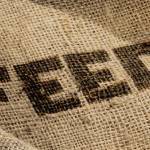Citrus Pulp: A New Ingredient for Horse Feeds?

Citrus pulp, the material left over when orange juice is produced, contains fiber and carbohydrates, two of the staples of equine diets. Can citrus pulp be safely incorporated into feeds for horses?
That question was recently investigated by researchers from Middle Tennessee State University and the University of Sao Paulo in Brazil. They designed a study that used five adult horses being fed varying amounts of citrus pulp along with traditional hay and grain.
The horses were kept in individual unbedded stalls and were fed maintenance diets in which the concentrate portion contained from 0% to 28% citrus pulp. All horses consumed the feed regardless of the level of citrus pulp, suggesting the pulp did not impart an undesirable taste or smell. However, previous work had shown highest feed intakes when citrus pulp was included at 7% rather than larger percentages.
Manure was collected and analyzed for digestibility of various components including dry matter, crude protein, and soluble carbohydrates. No effect was found for digestibility of any component except for soluble carbohydrates.
The researchers concluded that citrus fiber could safely be included in equine feeds at levels up to 28%. As an easily fermentable fiber, citrus pulp provides energy to the horse while allowing the diet to contain less starch, thus minimizing glycemic and insulinemic responses to feeding.
Citrus pulp is readily available in some areas and might be a low-cost alternative to some other horse feed ingredients. Horse owners should check with an equine nutritionist before making significant changes to equine diets, and any changes in feeding should be made gradually to allow the microbes in the digestive tract to adapt.








